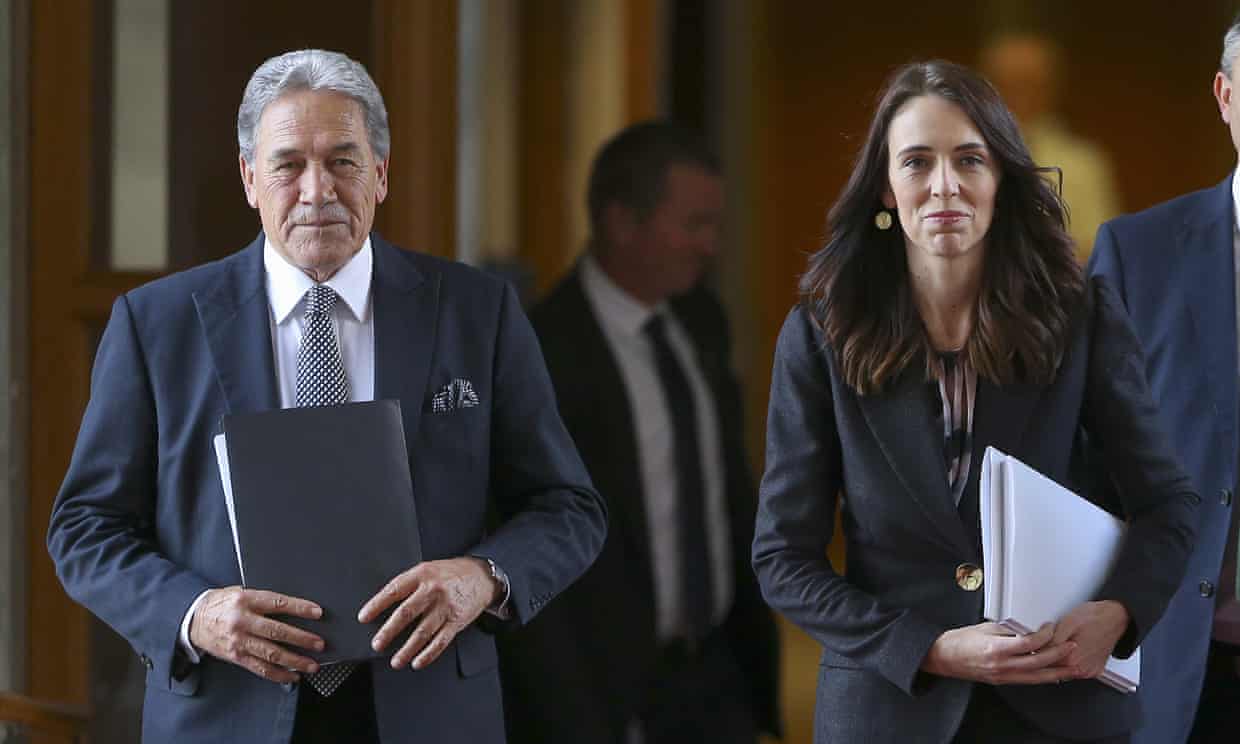
New Zealand
New Zealand deputy PM breaks ranks to urge Ardern to lift Covid-19 lockdown
Political kingmaker Winston Peters says nation has been in lockdown for ‘too long’ and calls for immediate move to the lowest level of restrictions
by Charlotte Graham-McLayThe deputy leader of New Zealand’s government has broken ranks with the prime minister, Jacinda Ardern, decrying her refusal to drastically loosen the country’s lockdown rules and immediately establish a trans-Tasman travel “bubble” with Australia.
“We’ve been in compulsory lockdown for far too long,” said Winston Peters, who is the deputy prime minister and foreign minister, but is not a member of Ardern’s Labour party.
“Everybody who has put their heart into the future, the country’s future, and their family’s future realise there is only one way out of this - to think smart and work harder,” he added, during a radio interview on Tuesday. He had been asked by the interviewer whether he supported Ardern’s suggestion of extra public holidays to bolster the country’s flailing tourism sector.
His words were some of the most strident criticism of the swift, strict lockdown - which has drawn praise for Ardern worldwide - to be made by an MP, which made the fact that it came from within the prime minister’s government, rather than from her opponents, all the more surprising.
But the comments from Peters - who is the leader of New Zealand First, a populist minor party, but holds his ministerial portfolios in power-sharing agreement with Labour - were also widely seen as a form of election-year jockeying for position as he tries to differentiate his own party from Ardern’s ahead of the vote in September.
The prime minister said on Monday, following a cabinet meeting which Peters attended, that New Zealand would remain at its current level 2 shutdown rules - after spending close to two months at the stricter levels 4 and 3 - until at least 22 June. Ardern’s government shut down the country in late March, when there were just over 200 cases of Covid-19 in New Zealand, and no deaths.
A total of 21 people have since died of the virus, and there have been fewer than 1,500 confirmed cases, a result widely credited to the strength of the lockdown. But Peters said New Zealand First MPs had told Ardern at Monday’s meeting that she should consider a move to the lowest level 1 restrictions immediately.
“You have to look at the percentages and say are we 98, 99% safe? If we are we’ve got to risk it and get going,” he said, adding that he feared for the mental health of New Zealanders if restrictions continued.
“The enemy we’ve got now is not Covid-19, it’s the inability to turn this economy around as fast as possible,” he said.
Ardern took a conciliatory tone when asked about Peters’ remarks, downplaying suggestions he had spoken out of turn by revealing cabinet deliberations. “From time to time, we will agree we will share differing views in public,” she said.
The prospect of a trans-Tasman bubble, she added, was in development and a blueprint would be provided in early June for how it would work. The plan, which would allow travellers to move between the countries without a compulsory fortnight in quarantine, was “not ready yet,” Ardern said, as Australia and New Zealand remained in different stages of relaxing restrictions.
Under level two rules, most businesses have been allowed to re-open with strict physical distancing measures in place. Schools are back in session, and people may gather in groups of up to 10 people - which will lift to 100 on Friday.
Peters is a veteran lawmaker with a penchant for political theatre, particularly in election years. He held a “kingmaker” position after the 2017 vote, when neither Labour nor National won enough seats to govern outright, and chose to broker a deal with Ardern over her opponent.
Before this year’s election, Peters faces the prospect of distinguishing his party from Ardern’s; under New Zealand’s Mixed Member Proportional voting system, New Zealand First must receive 5% of the overall vote, or win an electorate seat, to be represented in parliament. The party is currently polling below the 5% threshold, with the election scheduled for 19 September.